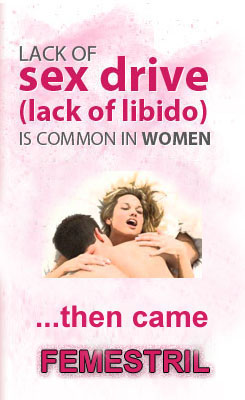Female Sexual Pain and Intimacy
Female Sexual Pain and Intimacy
Sexual Pain Doesn’t Have to Interfere with Intimacy.

For most people, enjoyable sex is sex without pain. But even small discomforts can make sex less pleasurable. While sexual pain can have many causes, the clue to resolving it can start with our mindset.
What causes sexual pain?
Sometimes, sexual pain is situational. You might have a new partner and need time to adjust to each other’s bodies. Or you might be trying a new sexual position or having sex in a place you’re not used to. Any of these scenarios are possible, and they’re usually easy to fix.
Painful intercourse can occur for reasons that range from structural problems to psychological concerns. Many women have painful intercourse at some point in their lives.
The medical term for painful intercourse is dyspareunia (dis-puh-ROO-nee-uh), defined as persistent or recurrent genital pain that occurs just before, during or after intercourse. Talk to your doctor if you’re having painful intercourse. Treatments focus on the cause, and can help eliminate or lessen this common problem.
However, sexual pain can be caused by medical conditions, too. It might be temporary, but it could be chronic. And it might be difficult to solve at first. Here are some common and not-so-common causes.
Causes of sexual pain for women:
- Endometriosis (growth of endometrial tissue outside the uterus)
- Ovarian cysts
- Pelvic inflammatory disease (an infection often caused by untreated STDs)
- Recent childbirth
- Vestibulodynia (pain at the entrance of the vagina)
- Vulvodynia (chronic pain in the vulva – the clitoris, labia, and opening of the urethra)
- Vaginismus (involuntary contraction of vaginal muscles)
- Gynecologic cancer
- Menopause
- Vulvar and vaginal atrophy
What can I do to treat painful intercourse?
If you have recurrent pain during sex, talk to your doctor. Treating the problem can help your sex life, your emotional intimacy and your self-image.
What can couples do to stay intimate without pain? Here are some tips:
- Rethink your definition of sex. Many couples believe that sex equals penetration and that other activities don’t “count.” Focus instead on what counts for you and your partner. Is it pleasure? Excitement? Connection and bonding? Think of ways you can achieve these goals without pain. It might mean trying new sexual positions, engaging in oral sex, or doing mutual masturbation. It could be kissing, fondling, or massage. Whatever it is, you and your partner can decide what will make an intimate experience satisfying.
- Talk to your partner. Lots of couples are anxious about discussing sex together. But it’s important to do so, especially if one of you is feeling pain. Be direct about telling your partner about what is painful and what it enjoyable. Be open about the ways that your sexual challenges are affecting your relationship. If you have trouble with these discussions, seeing a counselor or sex therapist can help.
- See your doctor. Many sources of sexual pain can be treated with medication, lubricants, physical therapy, counseling, sex therapy, or surgery. Talk to your gynecologist, urologist, or primary care physician about what’s happening.It may take some time to pinpoint the cause, but it’s a path worth exploring.
- Be willing to make adjustments and compromises. As noted above, some couples need to try new things in the bedroom. Take your time discovering what these things are. For example, a woman who finds vaginal intercourse painful might try a warm bath or a romantic slow dance with her partner, if those activities will help her relax. She and her partner could also decide to take intercourse out of their sexual routine while she seeks treatment.
If you are having sexual pain, you don’t have to grin and bear it. Chances are, your partner will want to do what it takes to make the experience satisfying for both of you. Work together to reach your sexual goals.
A NEW treatment for painful intercourse.
As of 2018, there is also a new pharmaceutical drug that has shown promising results for alleviating painful sex. The drug is called Ospemifene, and it is approved by the U.S. Food and Drug Administration for the treatment of painful sex in women. Specifically, it was approved to treat moderate to severe dyspareunia (painful sex). An alternative to estrogen, Ospemifene works to keep vaginal tissue healthy and elastic.
At the 2014 annual meeting of the North American Menopause Society, Dr. Ginger Constantine of EndoRheum Consultants presented new research on Ospemifene. The results suggest that Ospemifene might relieve other menopausal symptoms beyond painful intercourse.
In the study, some women reported that symptoms like vaginal dryness, itching, and irritation improved because of Ospemifene. The drug also relieved difficult and painful urination and vaginal bleeding during sex in some patients.
It’s important to note that the drug is still FDA-approved for moderate to severe dyspareunia (painful sex). It’s possible that future research may explore Ospemifene’s role in relieving other symptoms and that the FDA may revise the drug’s label. For now, doctors who prescribe Ospemifene for symptoms other than painful intercourse are doing so “off-label” at their own discretion.
Of course, Ospemifene is a prescription drug – and as such there can be a range of side effects which may be experienced. If your discomfort during sex is mild, you may simply want to try a sexual lubricant, gel, or spray. There are many natural female sexual enhancement creams and lubricants which can improve vaginal dryness and make sex more pleasurable again. If you suffer from more extreme pain or discomfort during sex, you should see your doctor as soon as possible.
Let Passion and Pleasure Back into Your Life.
Order Femestril Risk-Free TODAY!
Resources
Centers for Disease Control and Prevention
“Pelvic Inflammatory Disease (PID) – CDC Fact Sheet”
(Page last updated: July 10, 2017)
https://www.cdc.gov/std/pid/stdfact-pid.htm
Health.com
“9 Problems That Can Make Sex Painful for Men”
(February 29, 2016)
http://www.health.com/health/condition-article/0,,20190111,00.html
International Society for Sexual Medicine
“Antidepressants and Vulvodynia”
http://www.issm.info/news/sex-health-headlines/antidepressants-and-vulvodynia
“What is a sperm allergy?”
“What is chronic prostatitis/chronic pelvic pain syndrome (CP/CPPS)?”
“What is clitorodynia (clitoral pain)?”
(http://www.issm.info/sexual-health-qa/what-is-clitorodynia-clitoral-pain
Table of Contents
 RSS Feed
RSS Feed Twitter
Twitter












